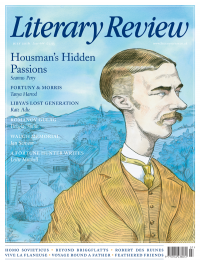Anna Reid
‘Things only ever got worse’
Second-Hand Time: The Last of Soviets
By Svetlana Alexievich (Translated by Bela Shayevich)
Fitzcarraldo Editions 695pp £14.99
Until recently, Svetlana Alexievich was little known outside the world of Russian studies. That changed last October, when she was awarded the Nobel Prize in Literature, becoming the first ever Belarussian and the first non-fiction writer since Winston Churchill to receive it. Since the start of her publishing career in the mid 1980s, her theme has been the tragic past of the former Soviet Union, as recounted by multiple individuals in their own voices. Hundreds of subjects are interviewed at length, some repeatedly and over many years. The resulting transcripts are edited down to anything from a one-line snippet to a chapter-length monologue and presented to the reader with minimal biographical information and little or no authorial comment.
Best known abroad of Alexievich’s books is Zinky Boys, the title taken from the zinc coffins in which Soviet soldiers killed in the Soviet–Afghan War were transported home. Most recent is Voices from Chernobyl, which gathers together first-hand accounts of the nuclear disaster. Ten years in the making, Second-Hand Time is her longest and most ambitious work to date. Her subject, she explains, is the Homo sovieticus or, pejoratively ‘sovok’, meaning someone ineradicably formed by the Soviet Union. ‘People who have come out of socialism’, she writes, ‘are both like and unlike the rest of humanity – we have our own lexicon, our own conceptions of good and evil, our heroes and martyrs. We have a special relationship with death.’
And death, in this collection, is ever present. Interviewees include Gulag and Holocaust survivors, deportees to Siberia and Central Asia, refugees from interethnic violence in the Caucasus, persecuted Tajik migrants, battered women, a young girl disfigured in a Moscow metro bombing, a brutally hazed national serviceman, the bereaved mother of

Sign Up to our newsletter
Receive free articles, highlights from the archive, news, details of prizes, and much more.@Lit_Review
Follow Literary Review on Twitter
Twitter Feed
It wasn’t until 1825 that Pepys’s diary became available for the first time. How it was eventually decrypted and published is a story of subterfuge and duplicity.
Kate Loveman tells the tale.
Kate Loveman - Publishing Pepys
Kate Loveman: Publishing Pepys
literaryreview.co.uk
Arthur Christopher Benson was a pillar of the Edwardian establishment. He was supremely well connected. As his newly published diaries reveal, he was also riotously indiscreet.
Piers Brendon compares Benson’s journals to others from the 20th century.
Piers Brendon - Land of Dopes & Tories
Piers Brendon: Land of Dopes & Tories - The Benson Diaries: Selections from the Diary of Arthur Christopher Benson by Eamon Duffy & Ronald Hyam (edd)
literaryreview.co.uk
Of the siblings Gwen and Augustus John, it is Augustus who has commanded most attention from collectors and connoisseurs.
Was he really the finer artist, asks Tanya Harrod, or is it time Gwen emerged from her brother’s shadow?
Tanya Harrod - Cut from the Same Canvas
Tanya Harrod: Cut from the Same Canvas - Artists, Siblings, Visionaries: The Lives and Loves of Gwen and Augustus John by Judith Mackrell
literaryreview.co.uk